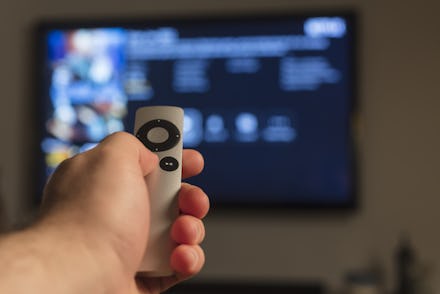How choice overload is stressing us out and making us less confident

Log onto Netflix, and you’ll be presented with a menu of nearly 6,000 titles. Create an OkCupid account, and you’ll have the chance to connect with 5 million other active users. Search for a new toothbrush on Amazon, and you’ll be bombarded with over 20,000 options, ranging from manual to mechanical, from packs of three to packs of 12.
As someone who is comically indecisive – and who studies stress – I often think about the pressure of making decisions when presented with so many options.
What do we experience, in the moment, when we decide from an abundance of choices? Does it cause us to shut down or does it energize us? Does it make us feel more confident or less confident? Could it have a lasting impact on our health and well-being?
We want choice – but not what we choose
Freedom of choice is a pillar of Western culture.
But there’s such a thing as too much choice.
Researchers such as Sheena Iyengar and Barry Schwartz have pioneered this area of study, finding that being overwhelmed with options can create an adverse experience called “choice overload or ”The Paradox of Choice.“
People tend to want as many options as possible. Whether it’s buying a car or a meal, they gravitate toward companies that offer more options versus fewer ones, because they believe a large selection will maximize their chances of finding the best fit.
But when it comes to actually making a decision from all of these options, people can become paralyzed – and avoid making choices altogether.
Even worse, when they finally do come to a decision, they’re more dissatisfied and regretful about whatever choice they make.
Getting to the heart of choice overload
To me, this explains so much of the day-to-day malaise that plagues modern society.
It explains the sheer excitement first-time homebuyers feel when they begin their search, followed by the fear that they won’t select the ideal neighborhood, school district or architectural style.
It explains the curiosity a sociable 20-something feels before checking out the opening of a new bar downtown, followed by the concern it won’t live up to her expectations.
Although we know choice overload eventually leads to regret and disatisfaction, it isn’t as clear what people are feeling when they’re in the middle of making these decisions.
My colleagues and I wondered: Do people genuinely feel confident about their ability to make a good decision? And, if so, when does this experience turn from good to bad – from brimming with potential to awash with dejection and doubt?
For our studies, we sought to peer into participants’ internal experiences as they made decisions, tracking their cardiovascular responses.
When people care more about a decision, their hearts beat faster and harder. Other measures – like how much blood the heart is pumping and how much the blood vessels are dilating – can indicate levels of confidence.
Participants in our studies reviewed online dating profiles. We asked them to choose one profile from many options or from just a few options. In other conditions of our studies, we simply asked them to rate profiles on a scale of one to 10.
We found that when the participants chose from many options, they felt more invested in the decision: Their hearts beat harder and faster. But their arteries also constricted – a sign that they also felt less confident about their decision.
In other words, when we’re presented with more choices, making the "right” or “correct” decision begins to feel more crucial and, at the same time, more unattainable.
The cardiovascular system responds the same way when we take an important exam feeling hopelessly unprepared, or commute to an interview for a dream job lacking the right qualifications.
Notably, even minor exposures to this kind of cardiac activity are believed to have long-term health consequences if they happen enough; they’re connected to certain types of heart disease and hypertension.
Deciding how to decide
Sensing high stakes over a decision – but not feeling particularly confident about making the right choice – may contribute to the deep-seated fear that we’ll make the wrong one.
I believe this fear could be tempered by putting the decision into perspective. It might help to remember that many of the day-to-day choices you make – what to have for lunch, what flavor best complements that caramel macchiato – aren’t going to matter in the grand scheme of things. Even seemingly more consequential choices, like accepting a new job, can ultimately be changed.
When thinking this way, the consequences associated with making the “wrong” choice become less scary.
It could also help to enter these situations with just a few clear guidelines and ideas of what you want – and absolutely don’t want – from the range of options. This can winnow the possible choices, and also make you more confident about your decision-making abilities.
So the next time you spend hours browsing through Netflix unable to land on a title to watch – worried that the OkCupid date you contemplated asking out for days won’t like it – remember that removing the sheer weight of our choices can help us navigate a world overwhelmed by them.
This article was originally published on The Conversation by Thomas Saltsman. Read the original article here.